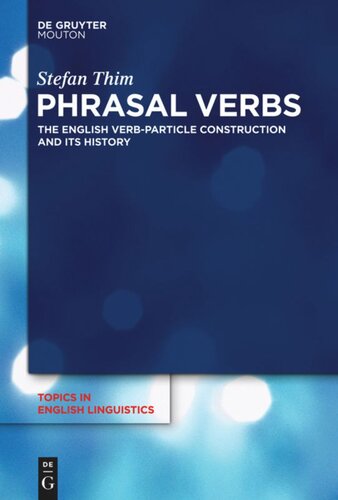

Most ebook files are in PDF format, so you can easily read them using various software such as Foxit Reader or directly on the Google Chrome browser.
Some ebook files are released by publishers in other formats such as .awz, .mobi, .epub, .fb2, etc. You may need to install specific software to read these formats on mobile/PC, such as Calibre.
Please read the tutorial at this link: https://ebookbell.com/faq
We offer FREE conversion to the popular formats you request; however, this may take some time. Therefore, right after payment, please email us, and we will try to provide the service as quickly as possible.
For some exceptional file formats or broken links (if any), please refrain from opening any disputes. Instead, email us first, and we will try to assist within a maximum of 6 hours.
EbookBell Team

4.1
50 reviewsThe book traces the evolution of the English verb-particle construction (‘phrasal verb’) from Indo-European and Germanic up to the present. A contrastive survey of the basic semantic and syntactic characteristics of verb-particle constructions in the present-day Germanic languages shows that the English construction is structurally unremarkable and its analysis as a periphrastic word-formation is proposed.
From a cross-linguistic and comparative perspective the Old English prefix verbs are identified as preverbs and the shift towards postposition of the particles is connected to the development of more general patterns of word order. The interplay of phonological, morphological, syntactic and semantic factors in the loss of the native prefixes in the history of English is investigated. In this context the question is discussed to what extent the older prefixes were replaced by particles and borrowed prefixes, how the characteristic etymological and semantic properties of the Modern English phrasal verbs can be explained and what role they play in the lexicon. The author argues that their common perception as particularly ‘English’, ‘colloquial’ and ‘informal’ has its origin in the eighteenth-century normative tradition.